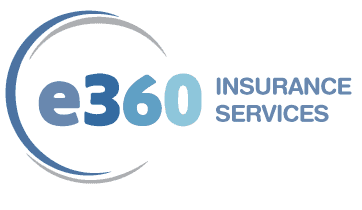
Who Gets the Insurance Check When a Car Is Totaled?
Introduction
When a car is declared a total loss after an accident, the disbursement of the insurance check is governed by several factors, including the owner's policy details and the circumstances of the incident. In a total loss accident, the insurance payout is not automatically directed to the vehicle's owner. Should the car be under finance or lease, the insurance company prioritizes the lender's or leaseholder's repayment. Any residual amount from the insurance settlement will be disbursed to you, the owner, only after the obligations are fulfilled.
Are you seeking clarity on who receives the insurance payout in the event of a totaled vehicle? This blog provides comprehensive answers to your questions. Continue reading to gain a thorough understanding.
Steps to Take After Your Car is Totaled
When your car is declared a total loss, it's essential to follow specific steps to navigate the insurance process efficiently and effectively. Here's what to do:
- Notify Your Insurance Company: Contact your insurer immediately to report the incident. Please provide them with all relevant details about the accident and the damage to your vehicle.
- Document the Damage: Take comprehensive photographs of your vehicle from multiple angles to show the extent of the damage. Also, collect and prepare any other evidence supporting your claim, such as police reports and witness statements.
- Secure the Vehicle: Ensure the vehicle is safely towed and stored to prevent further damage. Your insurance company will advise you on approved towing services and storage facilities.
- Review Your Insurance Policy: Understand the specifics of your coverage, including deductibles and limits. Knowing your policy details will help you understand what compensation you might expect.
- Complete the Claims Process: Fill out claim forms accurately and provide any additional documentation required by your insurance company to process the claim. Keep copies of all documents submitted for your records.
- Cooperate with the Adjuster: An insurance adjuster will be assigned to assess the damage to your car and determine if it is a total loss. Provide them with any necessary information and allow them to inspect the vehicle if required.
- Review the Settlement Offer: Review it carefully once the adjuster provides a settlement offer. Ensure it fairly reflects the value of your car and covers your losses. If the offer is insufficient, you can negotiate or dispute the amount.
- Address Any Loan Balances: If your vehicle was financed, check if the insurance payout covers the remaining loan balance. If there are discrepancies, consider options such as gap insurance if it was previously purchased.
- Accept the Settlement: Finalize the claim if the settlement offer is acceptable. Sign any necessary paperwork to process the payment and formally close the claim.
- Plan for a Replacement Vehicle: Once the claim is settled, you can start looking for a replacement vehicle.
What Happens When Your Car is Totaled in an Accident?
A car is typically considered totaled if the cost of repairs exceeds a certain percentage of the car's value, usually between 70% and 100%, depending on state regulations and insurance policy terms. Once a vehicle is declared totaled:
- Claim Processing: The insurance adjuster will evaluate the damage and declare a total loss.
- Settlement Offer: The insurer will calculate the actual cash value (ACV) of your car and make a financial offer.
How to Determine the Value of Your Car?
When your car is totaled, the insurance company calculates its actual cash value (ACV) to determine the settlement amount.
- Vehicle Condition Assessment: The insurer evaluates the car's pre-accident condition, including mileage, interior and exterior condition, prior damages, and mechanical status.
- Market Analysis: The insurer conducts market research to compare prices of similar cars in your area, taking into account the make, model, year, and regional market trends.
- Valuation Tools: Standard industry guides like Kelley Blue Book, NADA Guides, or Edmunds estimate value based on comprehensive data.
- Adjustments for Features and Local Demand: Adjustments are made for any custom features, modifications, and specific market demands that might affect the car's value.
- Depreciation and Final Adjustments: The final valuation factors are the car's depreciation and any deductibles tied to your insurance policy.
Types of Coverages That Pay for a Totaled Car
- Collision Coverage: This covers damage to your car from a collision, regardless of who is at fault.
- Comprehensive Coverage: Pays for damage from non-collision incidents, such as theft, fire, or natural disasters.
- Uninsured/Underinsured Motorist Coverage: This applies if another driver is at fault and lacks sufficient insurance.
Can Insurance Rates Increase After a Car is Totaled?
Yes, car insurance rates can increase after a claim is made for a totaled car, mainly if you are found at fault. Factors influencing rate adjustments include:
- Driving History: A clean record may help mitigate increases.
- Claim Frequency: Multiple claims within a short period can lead to higher premiums.
What Happens to Loan Payments When a Car is Totaled?
If your car is financed and is declared a total loss:
- Remaining Loan Balance: The insurance payout (ACV) is used to pay off the loan. If the ACV doesn't cover the total balance, you are responsible for the remaining amount unless you have gap insurance.
- Gap Insurance: This covers the difference between the insurance payout and the remaining balance on your car loan if the payout is less.
Conclusion
Receiving an insurance check after your car is totaled involves a clear understanding of your coverage, the value assessment process, and the implications for any existing car loans. Ensure that your insurance coverage aligns with your needs to avoid potential financial shortfalls in the event of a total loss. Being informed and prepared can significantly smooth the process and help manage the economic impacts.
FAQs
We Insure Your Future
